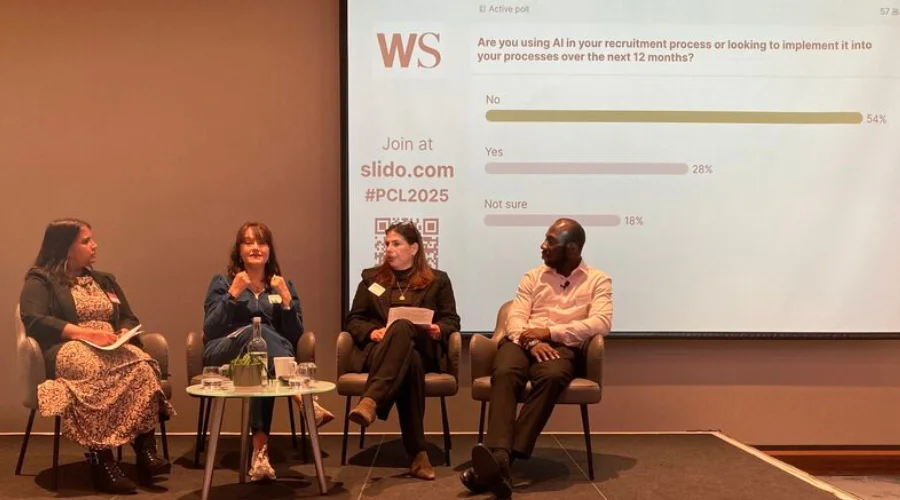
Quick CV Dropoff
Want to hear about the latest non-profit and public sector opportunities as soon as they become available? Upload your CV below and a member of our team will be in touch.

Having exceptional Trustees is vital, especially at a time when there are numerous challenges facing the charity sector, such as the cost-of-living crisis and difficulties hiring staff. Research shows that 56% of charities have stated they are having trouble filling vacancies, and these staffing difficulties are set to continue in the coming years. In light of this challenging recruitment situation, it is vital that charitable organisations appoint exceptional charity Trustees who have the passion to strive for success and continue their vital work.
In this guide, we’ll explore the process behind recruiting charity Trustees and look at some of the skills your next charity Trustee should possess.
Selecting the right charity Trustee can be an intricate process. Not only do you have to judge applicants based on their professional skills, but you also need to consider their passion for the charity’s work and the time that they have to commit to this vital Board role, whilst also taking the time to ensure their eligibility for the role; this should include securing verbal references, signing an agreement that confirms no undisclosed bankruptcy or unspent convictions, and undertaking a DBS check, particularly for organisations whose beneficiaries are elderly, young, or disabled people. The level of rigour involved in recruiting charity Trustees is a testament to the importance of the role, and here is what the process typically entails:
Once you have decided that you need to invite new members to the Trustee board, it is important to check out the small print of your organisation’s governing document. Key questions must be asked, such as ‘how many Trustees can I have on the board?’ and ‘how long can they stay in post?’. When you have ironed out the formalities, you can start to lay out the skills and requirements needed for the role.
Creating an in-depth role advertisement is vital for you and the potential Trustee. By clearly outlining the roles and responsibilities, you can ensure that the right people apply for the position. You should also make sure that you place your Trustee listing on platforms that specifically advertise charity roles, such as on a dedicated non-sector and charity recruitment website like ours.
It is also paramount to ensure that the role advertisement includes inclusive language so you can attract candidates from all walks of life. With a more diverse workforce, you can expect better decision-making, a range of perspectives, and greater retention.

Reading someone’s application is one thing, but having an informal verbal conversation with them is a great way to get a feel of their skills and experience. During these interviews, be sure to ask the candidate about their passion, experience, and skill set. It is important that your potential Trustee shows a clear commitment to the cause they could go on to represent, and hopefully, you’ll get a chance to hear their passion over the phone. Additionally, telephone interviews can save you valuable time and resources by allowing you to weed out unsuitable candidates before in-person interviews.
There are various legal requirements that a candidate must fulfil before they can be considered for appointment. You should ask the applicant for a declaration that they are not disqualified before conducting a DBS check or, if this is not required, a reference.
Your reference should ideally come from a colleague they report to and who can comment on their skills and a peer (not family or friend) who is able to comment informally on the candidates as a person, for example, their beliefs, outlook, and the interactions they have had with them. There are various reasons why someone may be disqualified from being a charity Trustee (see here for detailed Charity Commission guidance) including unspent convictions for specific offences, and other legal disqualifying reasons (including reasons of Insolvency/Bankruptcy)
This is to ensure that there are no red flags. There are various reasons why someone may be disqualified from being a charity trustee, including being bankrupt or having an unspent conviction.
There are multiple ways a charity Trustee can be appointed, and the process is typically dependent on the procedure set out in the charity’s governing documents. Here are a couple of the most common appointment procedures:
When the process is complete, a formal offer should be made to your preferred candidate.
After reading our guide, we encourage you to pay a visit to our leadership and governance page to learn more about recruiting stand-out candidates.

Charity Trustees play a key role in shaping a charity’s goals and ambitions, so it is important that you hire Trustees who have the right skills and can clearly demonstrate a dedication to your cause.
As we’ve established, hiring a charity Trustee is far from a run-of-the-mill recruitment process, and there are special considerations you should consider when making your decision. Here are the top characteristics to look out for in your next charity Trustee:
Every charity has a clear mission they wish to achieve, and it is paramount that your Trustee is committed to your charity’s objectives. During the recruitment process, you should give them opportunities to show you that they are wholly dedicated to your vision. You could encourage them to tell you about their voluntary experiences in similar charities or ask them a simple, open question, such as ‘why does our cause matter?’.
From liaising with stakeholders to communicating with members of the public, charity Trustees come into contact with all manner of people. It’s crucial that Trustees are always open to hearing new ideas and learning new concepts, especially given how paramount collaboration is to any charity. Good Trustees will prioritise taking suggestions from other voices and be specialists in turning innovative ideas into positive action.
Charity Trustees are instrumental in shaping their organisation’s vision, so possessing excellent leadership skills is undoubtedly desirable. While it is paramount for Trustees to be able to listen to others and take ideas on board, they ultimately make the key decisions about where their charity’s vision and strategy are headed.
As well as attending to the charity’s needs, many Charity Trustee also excel in other managerial responsibilities, such as mentoring, networking, and public advocacy. However, this is not a rule, as younger people without this experience and who are just starting out in their careers can also become trustees with the right values, soft skills, and personality.
A key responsibility of being a charity trustee is bringing expert knowledge to the table. Trustees are often appointed to fill a specific skills gap, whether it be financial acumen or legal expertise. Recruiting a Trustee with the much-needed expertise you’re looking for can greatly enhance the effectiveness of your board. For example, if your charity is undergoing financial issues and the board is having difficulty finding a solution, appointing a Trustee with a background in financial governance may be just be what you need to ensure sufficient checks and balances are in place so that available funds are being spent in the right way and to address the charity’s mission.
Donors, stakeholders, and beneficiaries place their trust in charities, and that’s why it’s so essential that a charity’s Trustees have integrity and a strong moral framework. The Essential Trustee guide is a comprehensive document that explains the requirements and responsibilities associated with being a charity trustee. It outlines a list of key principles that all trustees should follow, including compliance with the law, accountability, and financial responsibility. The best trustees will use these core tenets to influence their decision-making.
You should include the Nolan Principle in any Trustee advertisement, briefings, and signing-on documents. They should have an understanding of the Charity Commission's ETG and signposted access to it to support those who are new in the role. This includes seven principles that form the basis of the ethical standards that they have to attest to. These principles are:
The voluntary sector is currently experiencing an unprecedented staffing and funding crisis, and it is vital for charities to appoint the right people to fill all-important charity Trustee roles. By clearly outlining what you want your incoming Trustee to achieve and knowing what skills to look out for, you’ll be well-placed to make the perfect appointment.

Whether you are a candidate looking for the latest charity Trustee roles or a charity that wants to appoint new board members, we are here to support you. We have been sourcing the best and brightest candidates for charities and non-profit organisations across the UK since 1996, and we’re immensely proud of the praise we’ve received from jobseekers and clients alike.
Be sure to reach out to us today, and one of our excellent consultants will be happy to speak to you about your career goals or talent acquisition strategy.